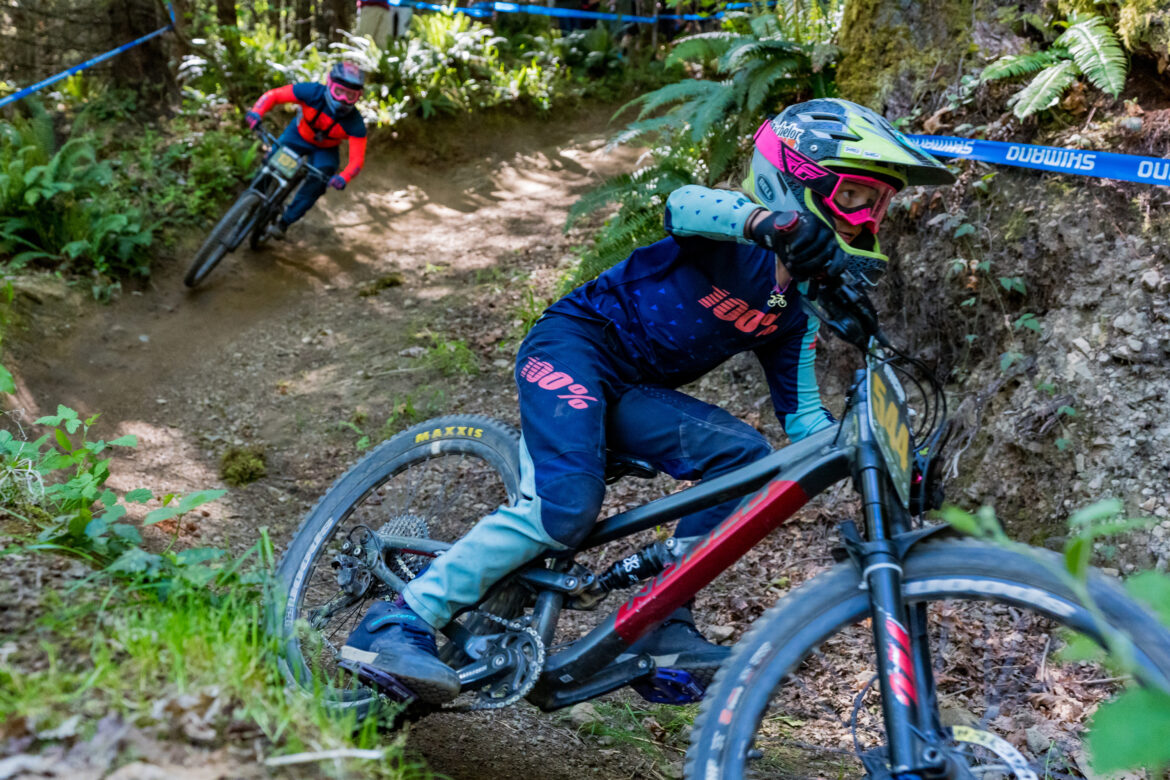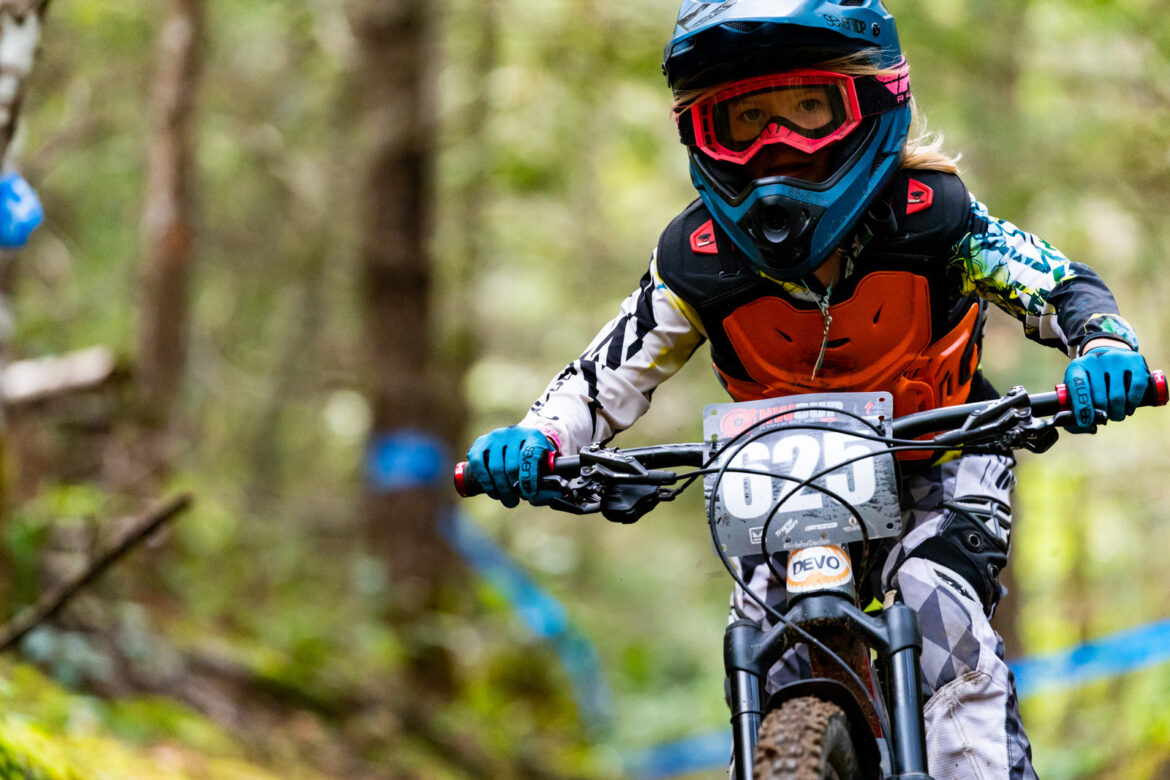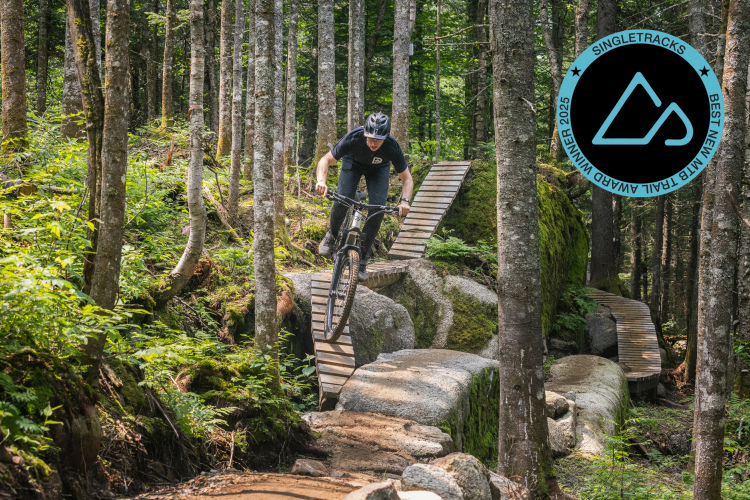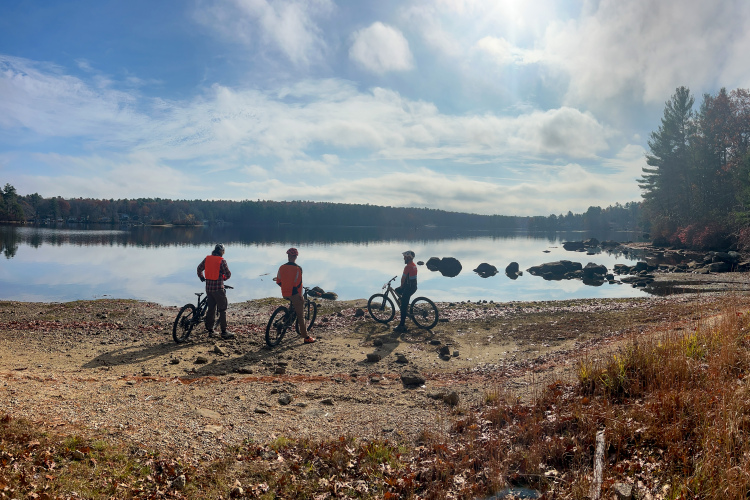
Though the red, plastic energy dome helmets popularized by the band Devo are no longer in fashion (if they ever were) “whipping it” will last forever, especially on a mountain bike. In Ashland, Oregon there’s a brand new Devo in town and they’re taking youth mountain biking to the next level. Devo, short for development, aims to inspire kids by building grit, resiliency, and camaraderie through mountain biking.
The real inspiration comes not from just the love of mountain biking, but a devoted dad. Casey Botts, executive director and co-founder, says Ashland Devo was officially born in the spring of 2019 when he met his new neighbor.
“Steven Crowthers had just moved from Colorado,” said Botts. “He has a daughter a little younger than my daughters and we started chatting about his experience in Durango with a program called Durango Devo.”
Still, Ashland Devo was not an overnight success. Over several years prior to meeting Crowthers, Botts had searched for a way to build community support around his two daughters’ burgeoning love of mountain biking. In fact, he says it was the primary reason they came to Ashland.
“We moved here at the end of 2016 from northern California. My daughters were 3 and 4. The major reason we moved here was because of the trails and I knew we’d be getting into mountain biking — they were already ripping around on two wheels.”
Botts discovered Ashland was missing a key component. “What I noticed [when I got here] was all the trails were here but none of the organization around community involvement was really in place. I had come from a place that had the community, but not the trails. I had to find a way to help build that community piece, because it’s so necessary.”
The Botts family are avid mountain bikers, he says. “As a family we travel around the West Coast a lot. In the summer we go to a lot of bike camps and ride different places, races. My daughters have made all these friends from Bellingham to Whitefish, Fort Collins, and everywhere in between. Now we have friends to ride with wherever we go. So I started thinking, how can I bring one of these programs back to Ashland? What would it look like? And I started brainstorming.”
Botts also knew from experience that community connection was critical. Especially the sustained support of friendship and camaraderie that comes through mutual love of sport activities done with peers. As he describes, biking solely as a family would not be enough to bolster and sustain his daughters’ long-term interest and investment.

“If you just have the trails, you’re really going to have to be self-motivated to get out. The kids probably aren’t going to be willing to go do it unless their parents are really pushing them. So it was important to me to create some sort of community — either around programs or lessons — where my girls would have friends to go ride with. Really that’s what it came down to.”
Back in 2017, Botts’ first brainstorming light bulb was to reach out to Little Bellas. His initial intent was to start a local chapter of their program for girls. He hit an immediate roadblock upon learning their strict requirement that the executive director be a female mountain biker.
Without a clear solution, Botts was eager for any opportunity to grow youth mountain biking programs in Ashland. Another opportunity presented itself.
“Somehow I found out Oregon was trying to form a bike league… most states have a league and Oregon didn’t at that time. Heather Wolfgang, the director of the [Oregon] NICA league, was poking around the state looking for people who might be interested in starting teams. I’d volunteered [for NICA] before and I had friends in high school who were on teams, so I knew about the program.”
Coaching Ashland NICA’s inaugural racing season for the first time was a rocky affair, Botts explains.
“I jumped on that opportunity and started this high school team with 20 kids…it was totally Bad News Bears. We were scrappy but we didn’t really know what we were doing yet or what we were getting ourselves into.”
After that first 2018 NICA race season ended, Botts determined the team would be a great opportunity for his girls, but they wouldn’t be NICA-eligible until sixth grade. At ages five and six, that meant it would be years before his daughters were eligible to participate, that is if their interest hadn’t yet waned. He needed something immediate, to teach and support them and connect them with local biking friends.

Finally, in the spring of 2019 Botts found a partner and co-MTB-girl dad in Steven Crowthers. As Botts describes, they decided to test the waters. “Steven and I talked with RVMBA (Rogue Valley Mountain Bike Association), which I was on the board of at the time, and decided it would be best to just dive in and see what happened. First, we organized a kid’s day to see if there was any interest… and we had about 120 kids show up.”
Clearly there was enough interest in order to catalyze community support and fund the non-profit to get up and running. Devo’s first class only had 30 students. Following that, the spring 2020 roster had about 80 kids, but was canceled due to Covid. Fall 2020 was the first official full launch. Fast forward to April 2022, this past spring marked the program’s fourth full semester and it sold out to current capacity. Botts says Devo continues to grow.
“We’ve expanded to two classes per age group K-5, and a full middle school program in the spring with about 35 kids. We’re at a little over 200 registrations for spring and fall which works out to about 125 to 150 kids, as some kids only do one semester.”
Courses are offered weekly over a six-week period during the spring and fall semesters. They range from 1-2 hours based on age group and ability. Devo’s curriculum is unique because it combines diverse bike experience, the BICP instructor program, NICA’s on-the-bike skills 101, and USAC training fundamentals. In addition to these classes, Devo has also assumed responsibility for the racing team which Botts says has grown in tandem.
“I think NICA started with 125 kids or so the first year and now it’s up to 450 statewide. Ashland started with 20 on the initial team in 2018, now there’s 40 kids on that team. The racing team is 6-12th and each grade has their own class. There’s also a JV class and separate teams for girls and boys, racing all over the state.”
For Botts, creating opportunities for kids to participate is prioritized over competition or racing. He also strives to make learning to mountain bike safely and respectfully accessible to as many kids as possible, especially those who don’t live in Ashland but still want to ride. As he says, changes to the team structure such as becoming a dedicated Ashland team, would mean excluding non-local kids from participating and therefore prove detrimental.

“There could be an opportunity to become an [Ashland] affiliated club team, but we have a lot of kids from Medford and Gold Hill, we even have a kid from Cave Junction. So if that happened we would lose those kids.”
Children today spend an unprecedented amount of time indoors on screens, especially after Covid-induced distance learning. Involvement in structured exercise has been documented to naturally alleviate depression. Devo goes beyond exercise. The program is rooted in the intent to create confident, self-assured children who understand the meaning of hard work, are athletically aware, and know their own strengths and weaknesses in order to set them up to succeed as adults. Devo’s focus is on encouraging kids to become more self-confident and resilient, by teaching them tools to overcome challenges. Yet, the process of growing and supporting the mountain biking community is not without criticism. Botts has advocated for mountain biking to be recognized as an integral part of Ashland which can support both the community, the environment, and the economy, amidst some criticism of the sport in the community.
It seems the process of evolving the image of Ashland as a mountain biking destination as well as home to the Shakespeare Festival will not be without growing pains.
Leslie Eldridge is an Ashland Parks and Recreation commissioner, avid mountain biker, mom of two Devo participants, and has coached for Devo since its inception. As Eldridge put it, “Adaptation takes time, but mountain biking is here to stay and Devo is a critical component to making it an institution everyone can be proud of. I love the biking community and I’m invested in being a part of the change.”
The spirit of Devo is built on a foundation rooted in the spirit of the people who created it. People willing to do the work required to build a strong community, foster respect for the trails, and celebrate their love of mountain biking. Anyone who approaches mountain biking, who has peddled up a mountain knows, as Devo says, it builds resilience and grit in ways that are hard to achieve in other activities. These physical and emotional achievements are the hard won building blocks of character and lifeblood of all who brave the trails. Resilience is built in the struggle, to fall and get back up, keep coming back. Devo, Botts, and Eldrige are living and leading by example. If you want to change you’ve got to get involved and participate. If you want to grow as a person, get out there and ride.







0 Comments